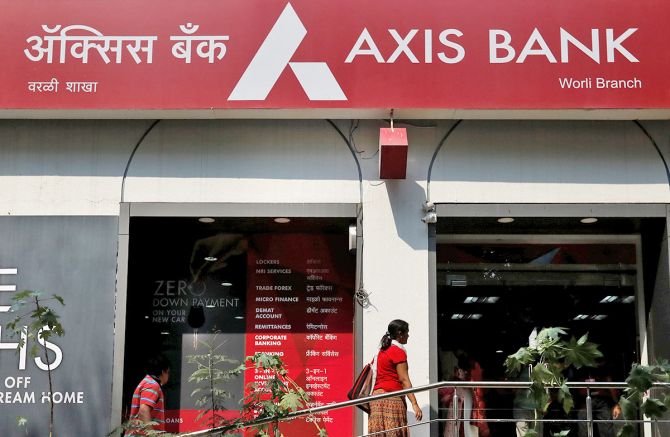'As far as Citibank customers are concerned, they will continue to be on the Citibank technology platform and will migrate to the Axis Bank platform over 18 months.'

Axis Bank is on track to meet the legal deadline on the Citi transaction, which is March 2023, Rajiv Anand, deputy managing director, tells Manojit Saha/Business Standard.
Do you see any impact on loan demand due to the sharp rise in interest rates?
What we have seen so far is interest rates normalising, and increasingly some liquidity tightening.
If you compare today's rates with those on December 31, 2018, some are slightly higher, some are the same, and some are lower are corporate loan rates. In that sense we have not seen any impact on growth.
The Reserve Bank of India projects 6.4 per cent GDP growth for next year, with about 5.4 per cent inflation. If these two metrics play out, we believe credit growth will be strong, somewhere in the 15 per cent vicinity.
Home-loan growth was in low single-digits till December for Axis Bank. This is in contrast with most other lenders. What is the reason?
There were some tactical decisions taken by Axis and you will see more normalised growth rates in retail. We are not seeing any material impact at this stage from a demand perspective.
Last year the third and the fourth quarters were strong, so the base effect is also playing some part. I think it is fair to say at this stage the higher interest rates are not having any material impact on demand.
Corporate loan demand, on the other hand, has been robust. But is it mostly working capital and refinance needs, or you are seeing loan demand for capital expenditure by the private sector?
It is a mix of all the three -- we are seeing higher working capital demand, some refinance activity, and, more importantly, the private capex environment is the best we have seen in three years.
Is it as much as we would like it to be? Probably not, but we can say the new private capex cycle has well and truly begun. Barring any untoward incident in 2023-2024, when the economy is expected to grow 6-6.5 per cent, private capex should continue to be strong and will gather momentum in the financial year.
In addition to that we have also seen in the Budget a significant increase in government capex. If you put both together, it augurs well for India in terms of gross fixed asset formation.
Which industries are contributing to demand in the private sector?
We are seeing a fair amount of activity in renewables, city gas distribution, and roads. In fact there is capacity expansion in iron and steel. There is a medium-size coffee company looking to increase capacity.
The point I am making is that this is becoming more and more widespread. I am confident that corporate demand will sustain.
However, I must mention here that all private capex may not come to banks because companies' cash creation continues to be quite strong and they are not averse to using their internal accruals first before approaching banks to lever up their balance sheets.
We are already seeing some steel and cement companies using their methodology because their internal accruals are very strong.
Regarding the Citi deal, initially it was expected to be completed by March 2023. It seems the deadline is getting pushed back. When do you expect the deal to be done?
I don't think this is correct. We had said we will close what we call LD1 -- the legal date 1 -- that's the date we pay consideration, the assets and liabilities come us, the employees come to us, the customers come to us, we are well on track to be able to meet this deadline -- which is March 2023.
What will happen next is that there is a period of 18 months of transition -- as far as Citibank customers are concerned, after LD1 they will continue to be on the Citibank technology platform and will migrate to the Axis Bank platform over a period of 18 months, what we call LD2.
When are you planning to raise equity capital required to fund the Citi deal?
If you look at the consumption of CET1 [common equity tier-1 capital], it is approximately 180 basis points as a result of the consideration that is being paid. Even after that our CET1 will be well above the regulatory minimum of 8 per cent. We will probably be in the 13 per cent handle.
So we do not need to raise capital for the Citibank transaction.
We are in a situation where the return on equity -- the amount of profits that the business is generating -- is enough to fund growth.
So we are well fortified as far as CET1 is concerned after paying for Citibank and the profitability of the business is such that it is self-sustaining from a capital perspective.
At this stage we don't see any requirement to raise capital.











 © 2025
© 2025